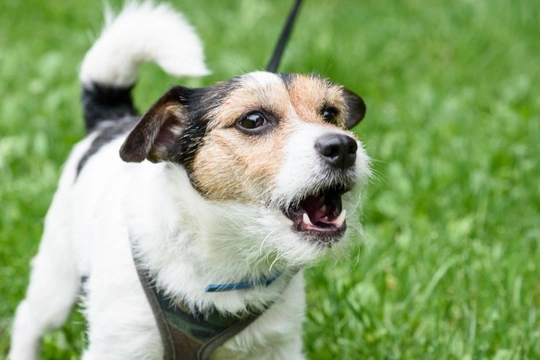
Six different approaches to try with a dog that barks excessively
With only a very few exceptions, all dogs bark from time to time, and some bark a lot more than others! Whether your dog is an excitable yapper or a large, stoic guarding breed, the chances are that you hear them bark for some reason every day, and can probably identify the types of situations and scenarios that are likely to lead to them barking.
A dog that barks in excitement when you come home or that woofs to alert you of someone approaching the door is generally no problem, as they will stop barking quickly and generally won’t make a lot of noise at other times. But if your dog barks to excess, is triggered to bark at the smallest things or is generally a real pain to the point that it is driving you and/or your neighbours mad, you will need to do something about this!
Stopping a dog from barking excessively can be challenging, and there is no one size fits all approach that will suit every single dog. Knowing some of the different approaches that can be effective at reducing excessive barking can help you to make an informed decision about the best way to reduce your own dog’s barking. In this article, we will look at six different approaches to try with a dog that barks excessively, and how to decide which approach might be best for you. Read on to learn more.
Train your dog with a “quiet” command
One of the most effective ways to stop a bout of barking in progress is by teaching your dog to respond to a command for “quiet.” You can train your dog to respond to this in just the same way as you would with any other command-by giving the command, reinforcing with a treat (this is actually pretty easy with the “quiet” command, as the diversion of the treat is usually enough to stop your dog in their tracks). Over time as your dog builds up the mental association with “quiet” and the reward, the command itself should be enough.
Divert your dog’s attention
If your dog is barking and clamouring at the door when there is no one there or is generally making a fuss and a lot of noise, divert your dog’s attention to something else until they forget what they were doing in the first place.
It is important to approach this method in the right way, however, because otherwise it is all too easy to teach your dog that barking gets attention, and so reinforces the behaviour.
Pull out a favourite toy or start doing something else that your dog will show an interest in, and wait until they have spotted it and stopped barking before giving it to them, or playing with them. Take it from them again if the barking continues!
Respond to the barking in the right circumstances
Many dog breeds have long working histories as guarding and watchdogs, and this means that they have a strong evolutionary tendency to patrol their territory and use their voices to tell you of the approach of a stranger or something else that they think merits your attention.
For dogs like this that only bark within certain situations, simply acknowledging their barking by going to “check it out” or calling your dog to tell them that you heard them will be enough!
Reduce stimulus that triggers barking
Another way to approach excessive barking is to minimise the type of stimulus that causes your dog to bark in the first place. For instance, if your dog spends most of their time in a lounge that overlooks the front drive, they may spend a lot of time looking out of the window and waiting to spot people to bark at.
Setting your dog up in a different room where they will not be able to keep watch on the front door can help to avoid barking at all comers for no good reason!
Ensure that your dog accepts their pack position
A dog that sees themselves as the alpha and head of your pack has much more on their minds that just dominance-they will also see it as their job and duty to protect your family and home, and this means that a dominant or alpha dog is exponentially more likely to bark and guard you and your family.
A dog that knows that they are not head of the pack, however, will be much more relaxed about things as it is not their “job” to take care of everyone, and so, they will be more settled and calmer as they trust their pack leader to head off any threats.
Ensuring that your dog does not think that they are the head of the household and working to re-establish their pack position if they do can often resolve the barking issue.
Provide feedback to curb barking
If your dog barks a lot when you’re not at home or simply won’t stop barking for any reason, this can be problematic and challenging to resolve.
You might wish to consider buying your dog a feedback collar that vibrates when they bark; collars of this type do not cause any pain or discomfort to the dog, but simply serve as a check to ensure that they are reminded that they should not be barking!
Avoid negative reinforcement methods such as collars that spray water in your dog’s face, or anything else that causes them to associate their collar or other things with an unpleasant stimulus, for any reason.



